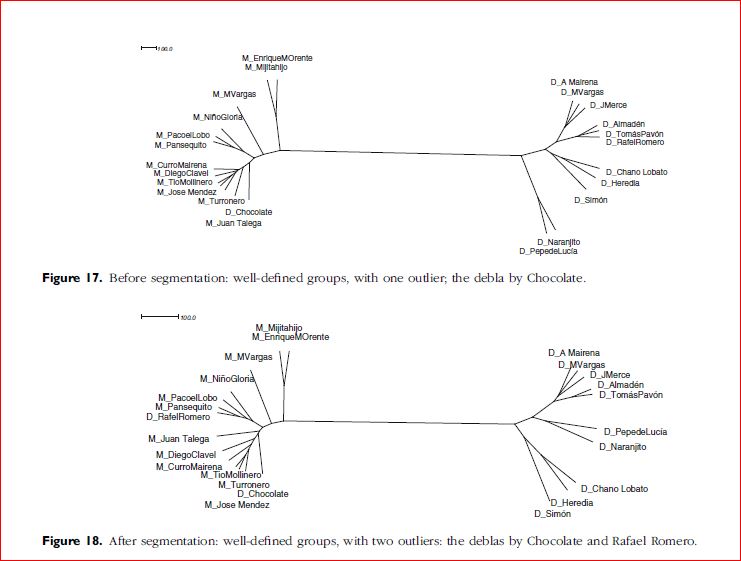|
mark indigo -> RE: Falsetta Etymology? (Dec. 5 2020 10:37:23)
|
quote:
In other words the way to study falseta evolution and changes is to actually *gasp* dare to learn falsetas quote:
oh crap. that's the most terrifying thing I have ever heard.
[:D]
At least listen to some!
I guess if you want to become an "expert" on falseta etymology then the "10,000 hours" rule probably applies.... sorry, but I really don't think there is a short cut, and the shortest route is just to put the work in.
quote:
can you absolutely guarantee me that they won't come out in my own music by accident?.
No!
...and I think that's the point - if you want to be part of the "tradition" ie. the same one that all modern artists belong to, then you have to ingest the tradition so that it comes out in what you do, so that you sound "flamenco". (Ricardo has already said this in relation to learning the Maestros' material.
quote:
I can play/sing melodies like george benson without internalizing it, if that helps understand and advise.
When you can play/sing melodies like Chacon/Montoya, Pastora/Ricardo, Caracol/Melchor, Camaron/Paco, Camaron/Tomatito then you can do what you want....
quote:
i once learned one falsetta and it still comes out in my own stuff and ruins everything. it made me cry a lot.
Maybe that stuff is your best stuff....?
|
|
|
|

